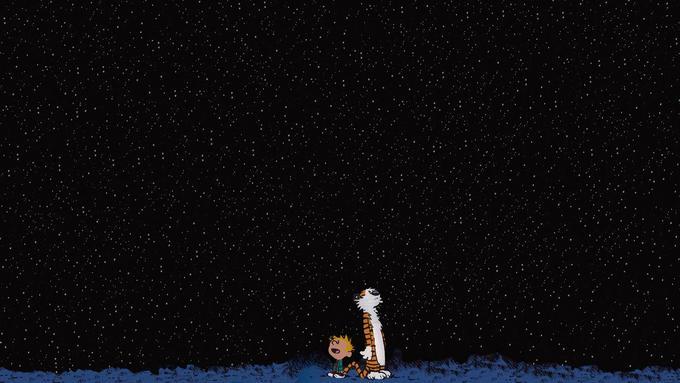Calvin of Calvin and Hobbes, once said, “If people sat outside and looked at the stars each night, I bet they’d live a lot differently.”
It wasn’t that long ago when people did sit outside and look at the stars each night. This is certainly one of the reasons why anyone who lived before Edison had an entirely different view of reality than we do.
This passage from Psalm 8 is but one example.
When I consider your heavens,
the work of your fingers,
the moon and the stars,
which you have set in place,
what is mankind that you are mindful of them,
human beings that you care for them?
When we look up at the night sky, we are seeing a tremendous distance through both time and space.
How far away is the farthest star?
Here are a few of the answers.
- The Milky Way galaxy is about 120,000 light years in diameter. We’re about 25,000 light years from the center. So, the most distant stars in our galaxy are about 95,000 light years away.
- The most distant known object has a redshift of just over 5. That means that the light from this object started its journey toward us when the Universe was only 30% of its current age. The exact age of the Universe is not known, but is probably roughly 12 billion years. Thus, the light from this object left it when the Universe was a few billion years old. Its distance is roughly 25 billion light years.
- Existing observations suggest that the Universe may be infinite in spatial extent. If so, then the farthest star would actually be infinitely far away!
Calvin and Hobbes
There’s a Calvin and Hobbes cartoon in which Calvin is lecturing Hobbes on astronomical truth. He explains,
“That cloud of stars is our galaxy, The Milky Way. Our solar system is on the edge of it. . . . We hurl through an incomprehensible darkness. In cosmic terms, we are subatomic particles in a grain of sand on an infinite beach.”
Then, after glancing at his watch he says,
“I wonder what’s on TV.”
A regular submission to the night sky will certainly leave us impressed by our smallness. In the modern world, we know it, but we no longer experience it. Not with any regularity anyway.
Another Calvin and Hobbes cartoon has a similar theme. Again, while looking at the night sky, Calvin says, “Just look at the stars! The universe just goes out forever and forever,” prompting Hobbes to say, “It kind of makes you wonder why man considers himself such a big screaming deal.” Calvin explains, “That’s why we stay inside with our appliances.”
When you are in your family room, it’s not difficult to consider yourself to be a big screaming deal. You are almost God-like in this context.
Omnipotent in your ability to create light.
Omniscient in your access to the internet.
Omnipresent because you have Google Earth.
Which perspective is more real? The one from your family room, or the one from the campfire?
One of my favourite quotes comes from Robertson Davies’ novel, The Fifth Business: “You have made yourself in to a god, and the insufficiency of it has turned you into an atheist.”


I like your campfire-family room analogy.
Analogies are awesome, but I’m discovering they aren’t always easy. Thanks for reading, Al.